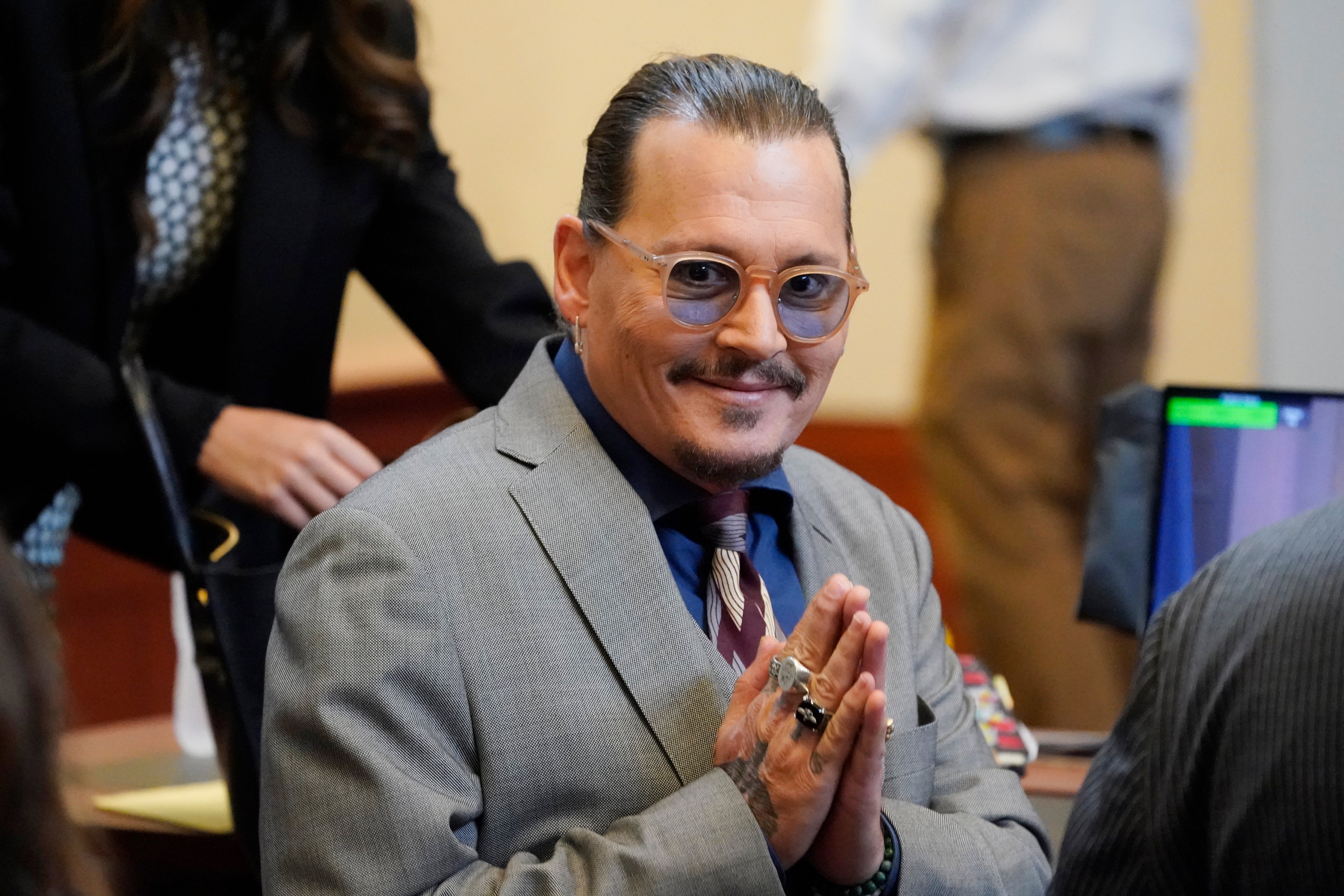No, Amber Heard is not going to end up in jail, experts say
Trial over defamation lawsuit brought by Johnny Depp inspires intense interest on social media
Your support helps us to tell the story
From reproductive rights to climate change to Big Tech, The Independent is on the ground when the story is developing. Whether it's investigating the financials of Elon Musk's pro-Trump PAC or producing our latest documentary, 'The A Word', which shines a light on the American women fighting for reproductive rights, we know how important it is to parse out the facts from the messaging.
At such a critical moment in US history, we need reporters on the ground. Your donation allows us to keep sending journalists to speak to both sides of the story.
The Independent is trusted by Americans across the entire political spectrum. And unlike many other quality news outlets, we choose not to lock Americans out of our reporting and analysis with paywalls. We believe quality journalism should be available to everyone, paid for by those who can afford it.
Your support makes all the difference.The high-profile defamation case being fought between divorced Hollywood stars Johnny Depp and Amber Heard in Fairfax County, Virginia, is entering its final days after more than a month of lurid accusations, acrimony and intense media interest.
Mr Depp, 58, is suing Ms Heard, 35, for $50m (£40m) over an opinion piece she wrote for The Washington Post in December 2018 in which she discussed her experiences as a victim of domestic violence.
Although Ms Heard did not name her ex-husband in the article in question, Mr Depp’s legal team argues that readers were likely to assume he was the person responsible for the ordeal she alluded to and have claimed that the piece caused their client to lose out on lucrative film roles as a result of its publication.
Mr Depp is a prolific blockbuster star best known for his run of dark fantasy movies with director Tim Burton and for the bloated Pirates of the Caribbean franchise but was recently replaced in JK Rowling’s Fantastic Beasts series after being asked to step down by Warner Brothers.
Ms Heard is counter-suing her former husband, whom she met when they starred together in The Rum Diary in 2011, for $100m (£80m).
Events in Virginia follow Mr Depp’s unsuccessful attempt to sue The Sun newspaper in London’s High Court in 2020 for describing him as “a wifebeater” in a report on the breakdown of their marriage and have been gleefully devoured on social media, where the trial has attracted a prurient degree of scrutiny, particularly on TikTok, where the hashtag #JusticeforJohnnyDepp has trended and been viewed millions of times.
Short video clips of Mr Depp grinning in the courtroom or mocking his ex-wife’s lawyers’ line of questioning have been widely shared, while Ms Heard’s every move, pronouncement and even sartorial choice has been closely observed for signs that she might not be telling the truth about the abuse she describes being subjected to.
The fact that both parties are actors by profession has tempted many to entertain the proposition that one or both might be lying, given that either could be expected to deliver a more convincing and emotional performance in the witness box than an ordinary member of the public.
Arguably, such speculation risks undermining the proceedings unfolding and obscuring the highly serious issues at the heart of the case.
Ms Heard in particular has attracted vicious animosity in some corners of social media, with several commentators following the case closely suggesting more than a little excitedly that she could be sent to prison should Mr Depp win.
This is simply incorrect as defamation is a civil matter, not a criminal concern.
“You don’t go to jail as a result of a civil finding,” attorney George Freeman of the Media Law Resource Center has told Fox News.
“The only way what happened so far in Virginia could lead to jail is if she’s accused and convicted of perjury, which there has been no official accusation of and which seems quite remote.”
While a perjury conviction could yield a 10-year prison sentence under Virginia state law, securing such an outcome would require its district attorney to prove that Ms Heard had knowingly spoken untruthfully in court, a very high standard given that it is difficult to substantiate conclusively that someone has wilfully misled a court of law.

Incorrect statements could equally be explained by a defendant genuinely misremembering the facts in their account or becoming confused and making an honest mistake, for instance.
Civil attorney Broderick Dunn meanwhile told Fox that perjury cases are often opted against for fear of inspiring a “chilling effect” that discourages victims from speaking out against violence they have endured.
Ms Depp’s online cheerleaders have, however, picked up on Ms Heard’s admission that she has not yet honoured her pledge to donate the $7m (£5.5m) divorce settlement she received from her ex-husband to the Children’s Hospital Los Angeles and the American Civil Liberties Union as she had promised, despite previously claiming that she had, including during the High Court case against The Sun.
Speaking to The Daily Mail, Sean Caulfield, a partner at the law firm Hodge, Jones and Allen, suggested that could theoretically lead the Metropolitan Police to investigate the matter and, hypothetically, result in a seven-year prison sentence under English law.
“While [the donations] may not be a central issue to the case, perjury is the single biggest threat and cuts to the core of our justice system, so the police may be invited to investigate to show that any member of the public who lies to the court can be prosecuted for perjury,” he said.
Mr Caulfield, however, added that Crown Prosecution Service (CPS) guidance on the question, as in the US, requires prosecutors to prove that the false information given was offered despite the defendant knowing full well that it was untrue, “which can be hard”.
He further added that: “The other confusion is that she would need to be extradited. If the CPS authorises a charge, you then have to extradite her which is unlikely, especially as she is a US resident.”
Subscribe to Independent Premium to bookmark this article
Want to bookmark your favourite articles and stories to read or reference later? Start your Independent Premium subscription today.




Join our commenting forum
Join thought-provoking conversations, follow other Independent readers and see their replies
Comments